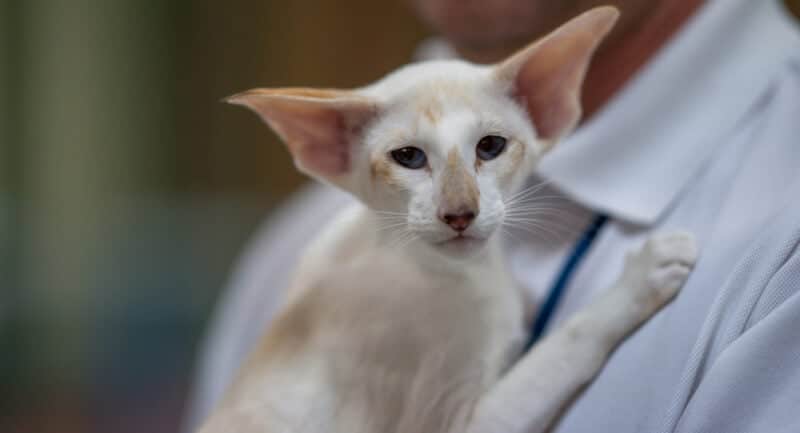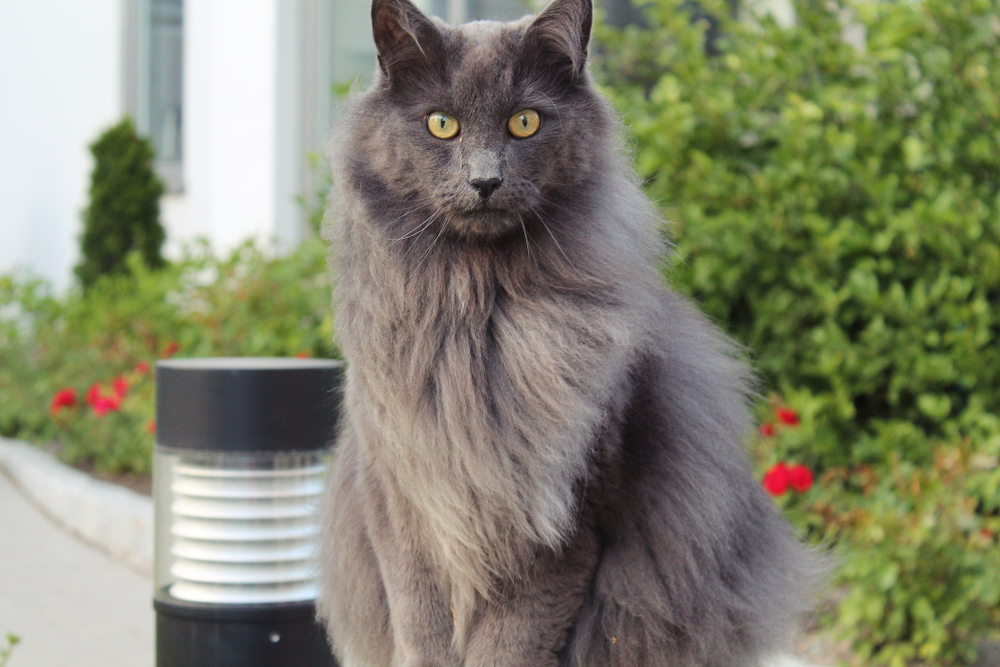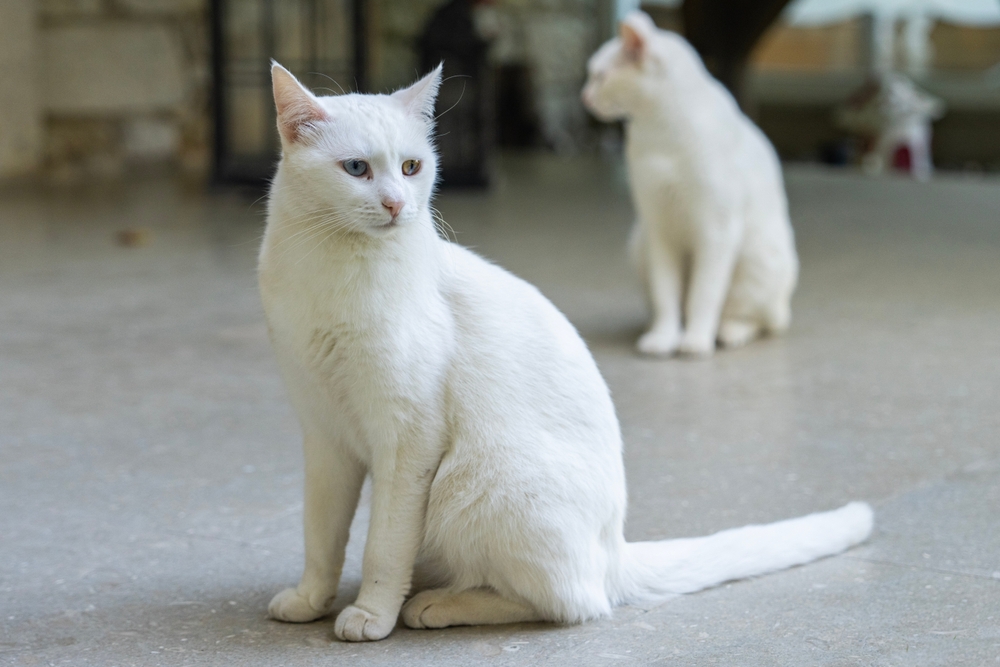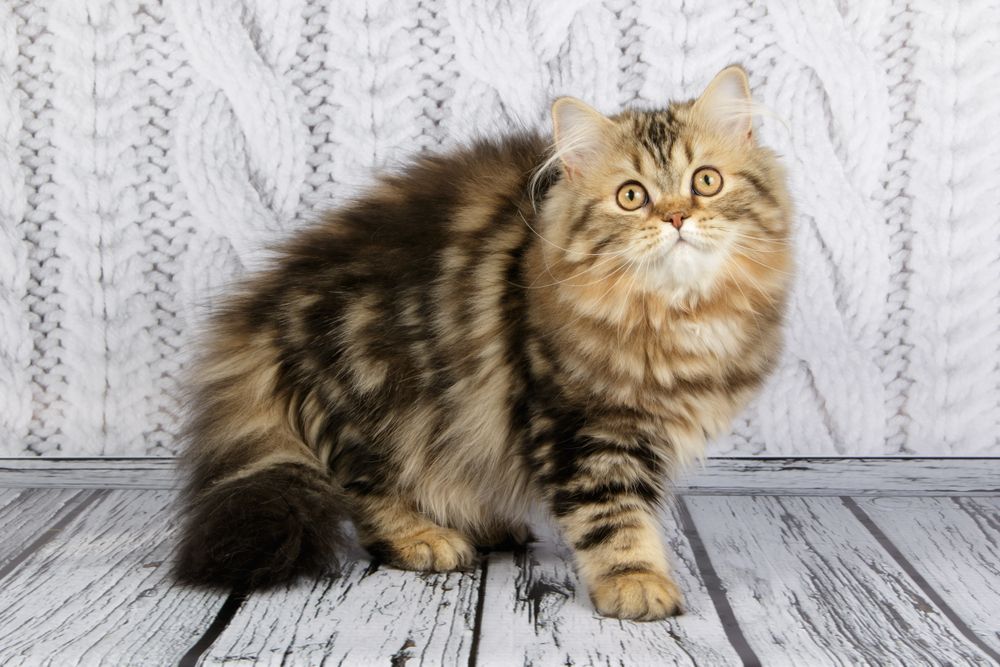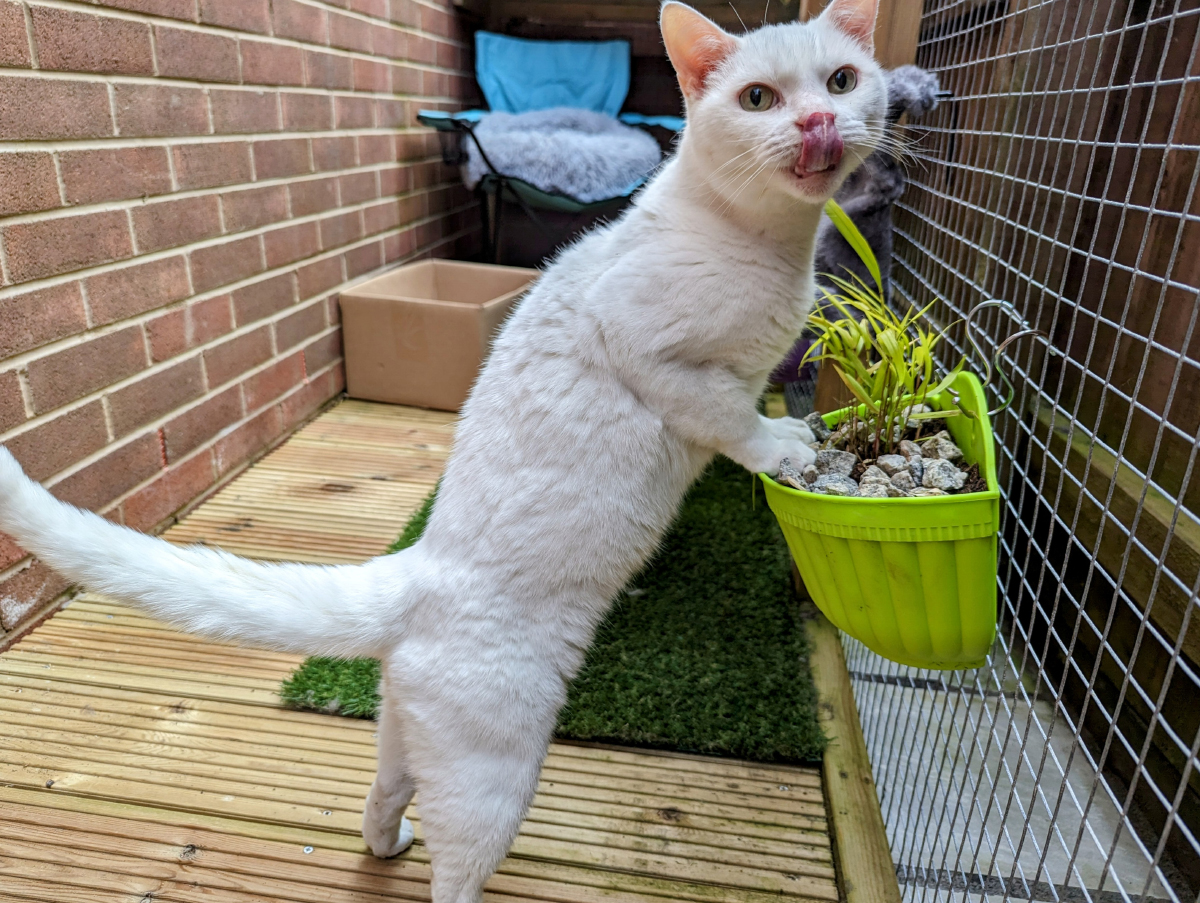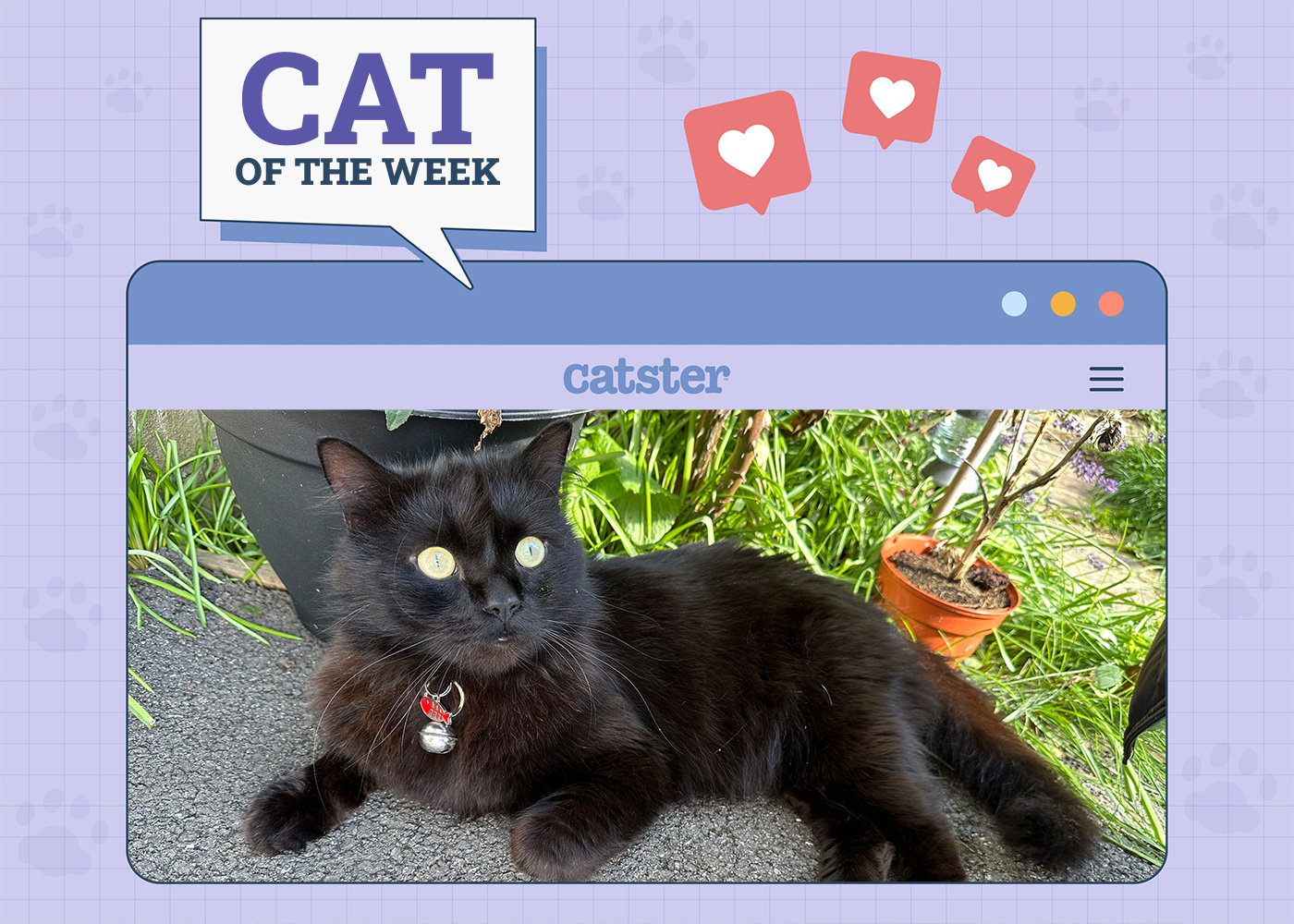Click Below to Skip Ahead
The Seychellois cat breed is a rare breed in the Oriental group of cats. They are also quite remarkable, affectionate, intelligent, and just a bit on the vocal side. The breed shares a few characteristics and appearances with the Siamese cat. If you’ve considered purchasing one of these cats from a breeder, you couldn’t find a better cat for families, apartment living, or kids.
Breed Overview
Height:
9–10 inches
Weight:
8–15 pounds
Lifespan:
12–15 years
Colors:
White with colored spots
Suitable for:
Families, apartment living, families with kids, single households not recommended for first-time pet owners
Temperament:
Intelligent, social, extroverted, affectionate, vocal
However, as with any breed of cat, you need to be careful that the breeder you go through is reputable and treats their cats the right way. Also, remember, taking in any animal is a full-time responsibility, and when you decide to give a home to a Seychellois kitten, it should be forever.
If you’re still unsure, we’ll give you everything you need to know about this adorable cat in the guide below and much more.
Seychellois Cat Breed Characteristics

3 Little-Known Facts About the Seychellois Cat Breed
1. Seychellois Cats Are Very Vocal
If you’re looking for a quiet cat, the Seychellois cat might not be the best cat for you. While not nearly as loud and vocal as the Siamese, this breed will let you know when it wants something, though in a softer voice.
2. Seychellois Cats Are People-Oriented
While most breeds tend to be stand-offish, the Seychellois are very people-oriented. Seychellois cats are very loyal and love being with their pet parents. They love to lay in your lap and will stay there all day if you’re content with the behavior.
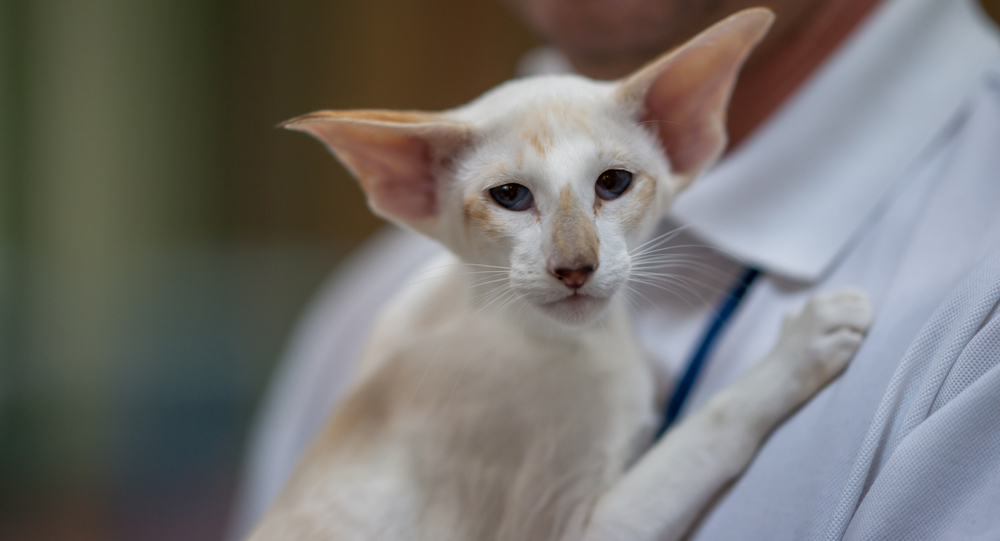
3. There Are Two Varieties of Seychellois Cats
Today any bi-colored Balinese or Siamese cat is considered a Seychellois cat. That means this breed has two varieties: the short-haired cat and the long-haired cat.
 Temperament & Intelligence of the Seychellois Cat Breed
Temperament & Intelligence of the Seychellois Cat Breed
The Seychellois cat breed is a brilliant breed with an affectionate temperament. It shares many characteristics with the Siamese cat. They are loving, easy to get along with, and very social. They tend to bond with one person and are very needy, so if you don’t have the time to spend with your cat, this isn’t the right choice for you. The Seychellois cat is also not recommended for first-time pet owners because of its high energy levels and inquisitive nature.
Are These Cats Good for Families?
The Seychellois cat breed is excellent with families. It is recommended for families because it’s playful, active, and loving. The cat gets along great with kids. However, you need to teach children how to treat their pets, as accidents have been known to happen. Your child could hurt the cat, or the cat could bite or scratch the child if it is hurt or threatened.
Does This Breed Get Along with Other Pets?
The Seychellois is ideal if you’re looking for a cat that gets along well with other pets. However, as with any pet, you want to socialize with the cat early on so that they know how to behave with other animals. It’s also best to train them early in their lives.
Also, if you have smaller animals, keep an eye on your rodents or rabbits. The Seychellois has a high prey drive.

Things to Know When Owning a Seychellois Cat Breed
Now that you know a bit about the Seychellois cat breed, you’ve probably decided to give the adorable kitten a forever home.
We’ll give you the breed’s food, diet, exercise, and training requirements and include any grooming and health conditions you might need to be on the lookout for.
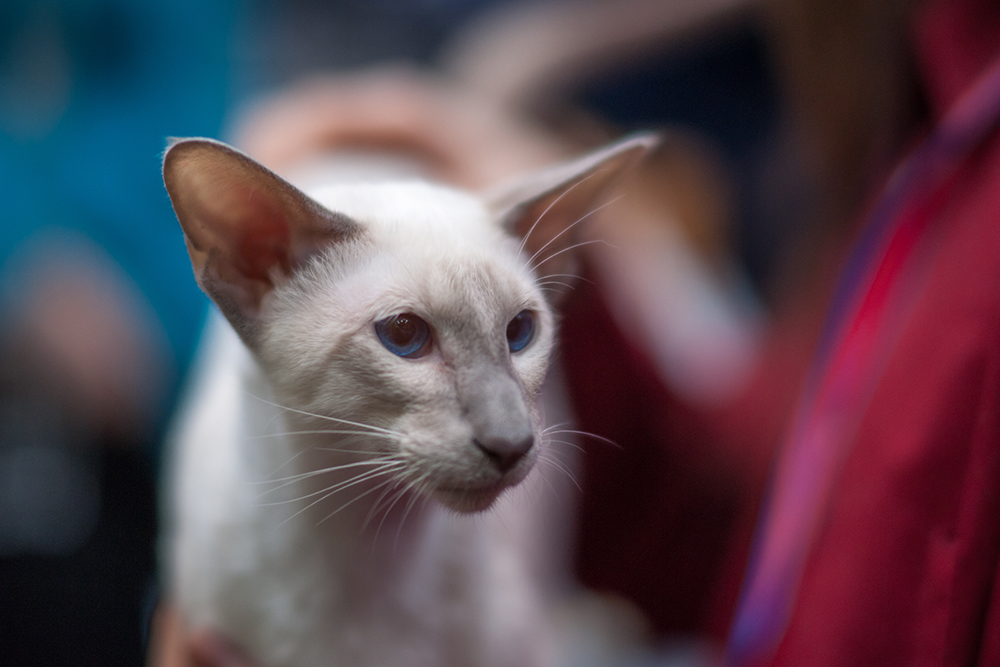
Food & Diet Requirements
This cat needs a high-quality protein diet to be healthy and energetic. If you decide to serve an all-natural food, make sure meat makes up most of the meal as it contains the protein the cat needs to develop healthily and live a long life.
Exercise
As we said before, this feline is an energetic, curious, playful breed, so it will need to be able to exercise. Give the cat plenty of toys that keep it busy, and install a cat tower with enough shelves, hiding holes, and perches to provide the exercise it needs.
Since your furry friend is intelligent, it will also need cat toys that stimulate its mind.
Training
The Seychellois cat isn’t hard to train to use the litter box. Not only is it an intelligent animal but it also likes to please its owners. Even with its eager-to-please nature and high intelligence, you still need to train the cat early on for the best results in keeping it off the counters and other places it doesn’t belong.
Grooming ✂️
Like most Oriental cat breeds, caring for your cat isn’t hard. However, if you have a longhair Seychellois, you must comb it regularly to keep tangles and debris out of your feline’s fur. It’s also important to check the cat’s eyes daily to ensure there isn’t an infection developing.
If you don’t have time to take care of your cat’s grooming, you can hire a professional groomer to do it for you at least once every couple of weeks. Short-haired Seychellois cats need to be regularly groomed, though not as often as their long-haired counterparts.
Health and Conditions
As with any animal, you should look for serious and minor health conditions in your Seychellois. We’ll list a few of those conditions for you below. If you notice any of these in your cat, it is best to contact your vet for an appointment so the cat can be diagnosed and treated immediately.
- Gingivitis
- Calculus
- Cataracts
- Diabetes
- Hypertrophic cardiomyopathy
- Amyloidosis
Male vs Female
There aren’t many differences between the males and females of this breed. The male is a bit larger and heavier than the female, but other than that, they are both affectionate, energetic, loving creatures.

Final Thoughts
This concludes our guide on the Seychellois cat breed and everything you need to know about these adorable felines. They are energetic, loving cats. However, it’s essential to realize that they need a lot of attention and will become attached to their owner. If you’re someone who isn’t home most of the time, this isn’t the right breed for you.
However, if someone is home most of the day, this is a great pet to give a forever home.
Featured Image Credit: Jaroslaw Kurek, Shutterstock

